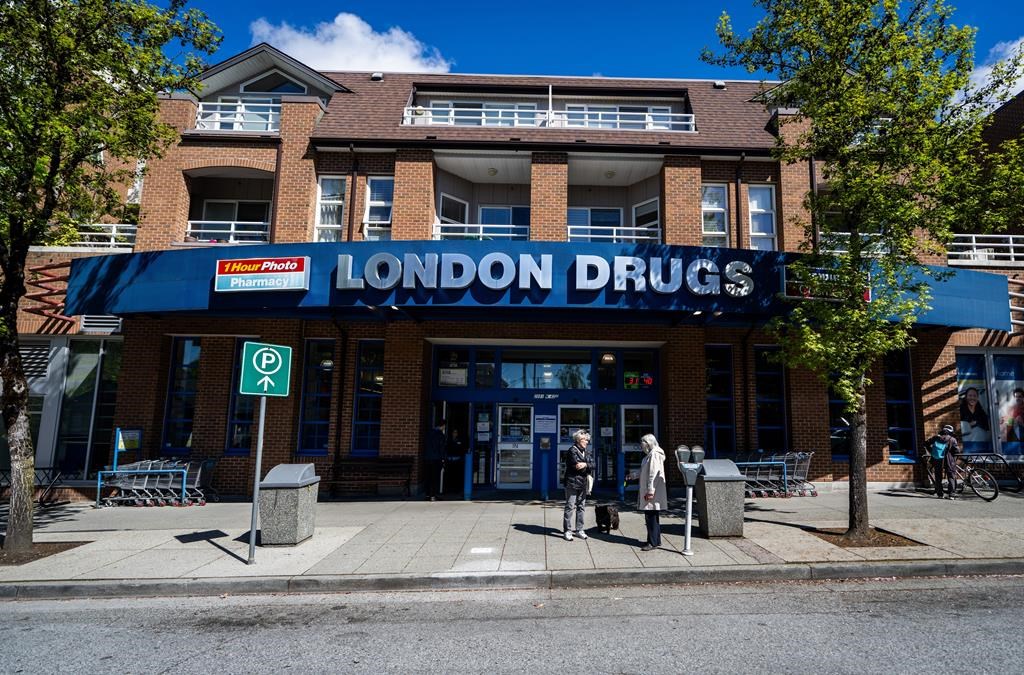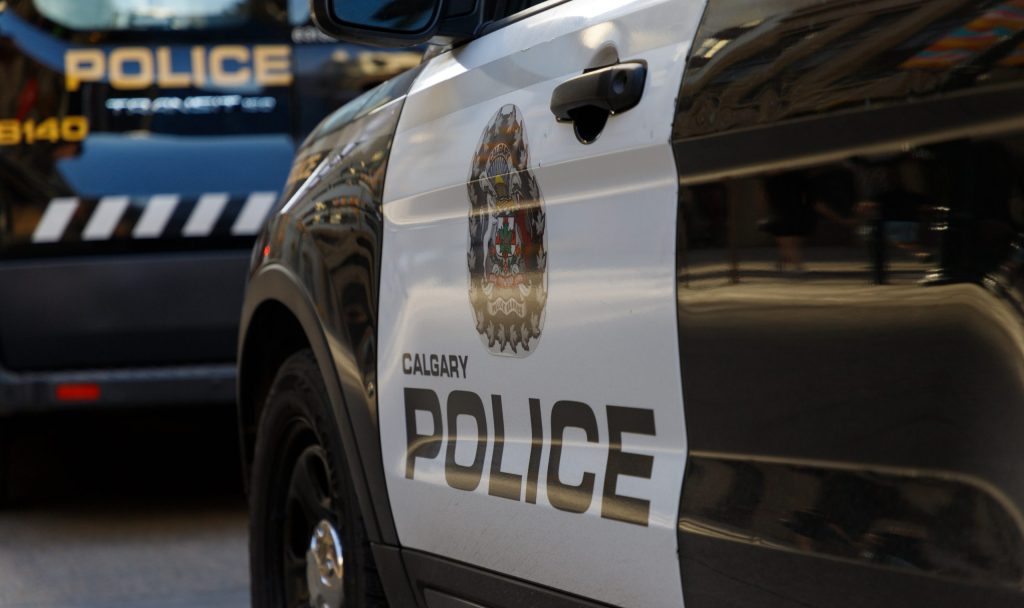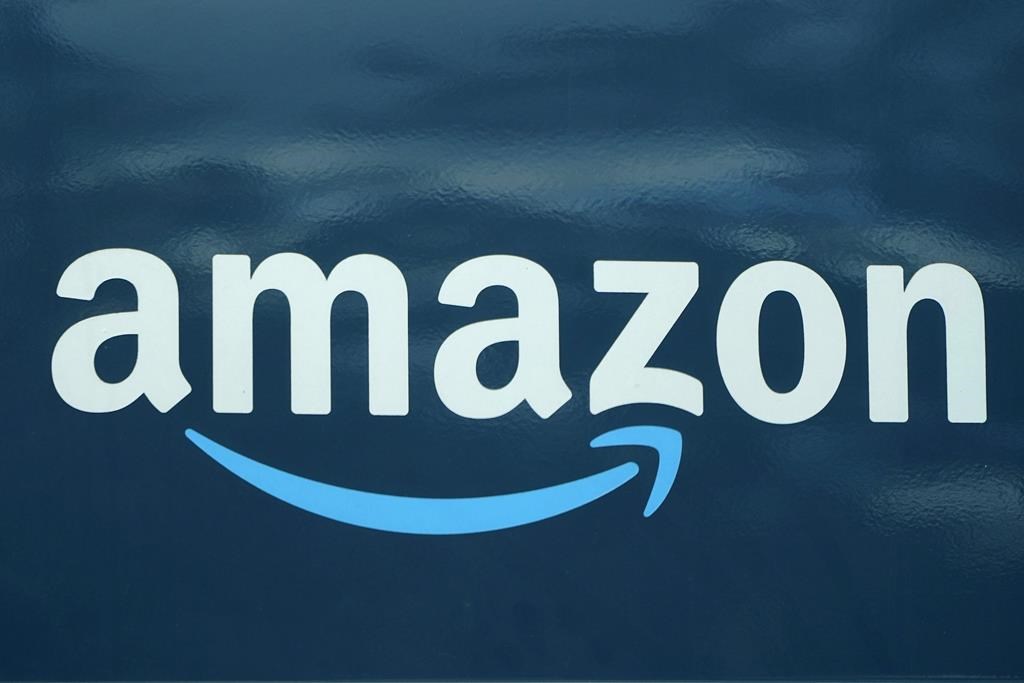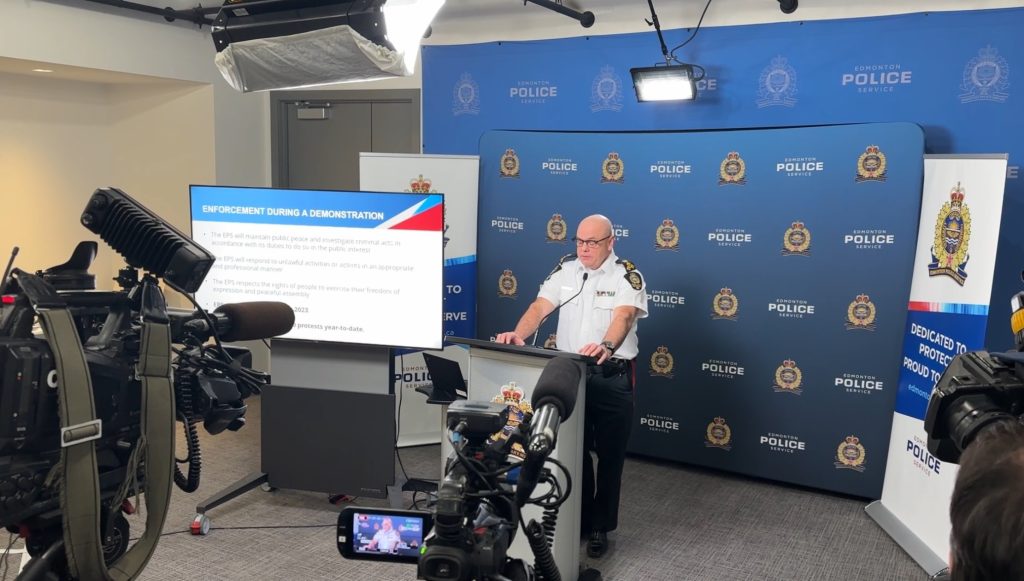COVID-19 fines, race relations, and the thin blue line: One-on-one interview with CPS Chief Mark Neufeld
Posted May 4, 2021 11:56 am.
Last Updated May 4, 2021 12:05 pm.
CALGARY – Calgary’s top cop is providing some insight into how his force handles anti-mask protesters, among other things, in a one-on-one interview with 660 NEWS.
Read through the highlights below.
COVID-19, rallies, and fines
In the 30-minute chat, Chief Mark Neufeld contested the mayor’s comments this week saying anti-mask and anti-lockdown protesters are being allowed to harass Calgarians with the protection of a police escort.
“I don’t think that’s a fair characterization, although I do appreciate there’s frustration around this,” Neufeld said of Naheed Nenshi’s comment.
READ MORE: ‘Harassing people with police escorts’: Councillors want tougher action on anti-maskers
“Our people are down at the protests, obviously, to ensure a safe environment not only for protesters but also for Calgarians. Because of the frustrations, we’ve seen an increasing number of people entering into verbal conflicts and this type of thing with the protesters. So, the purpose of the police being down there is clearly not to escort the protesters,” he said.
“The purpose of them being down there is to be able to police the protest from both sides making sure that everyone is able to express their rights but also to make sure that they’re not interfering with Calgarians either.”
Why not break up the protests while they’re happening? Neufeld says the opportunity to peacefully protest is a fundamental right for Canadians, so the weekly anti-lockdown rallies in Alberta are not inherently wrong.
“There can be some things that can happen within the context of a protest that may be unlawful… those would be things like assaults or as we’ve heard accosting other people. But the protests themselves are lawful.”
Typically police have waited to issue tickets until after the crowds have dispersed instead of while the protest is happening, which has some Calgarians frustrated.
“[Approaches can change] partially around the number of people involved in the demonstration and even just the type of interactions with people we’re having on the ground… Officers that are on the ground have a pretty good idea if it’s a good idea to intervene in the moment or wait until after,” said Neufeld.
He points to a rally in December where officers gave tickets out at the rally. Officers were “encircled” by protesters, according to the police chief, and that resulted in a number of criminal charges for assaulting police and obstruction.
RELATED: Kenney says new restrictions are coming, condemns those continuing to violate public health orders
“Sometimes it makes sense to do it later on.”
City council discussed increasing fines for people found to be not following health rules on Monday. The fine for not wearing a mask currently sits at $100, which Neufeld says was enough to be effective in the first wave.
He says at that stage, police had made efforts to engage and educate people disobeying orders instead of jumping immediately to writing a ticket.
Now, in the third wave, Neufeld says people “have been educated” and are simply ignoring the rules.
However, Neufeld says while many tickets have been handed out, police are finding that a lot of the charges and fines are being thrown out when they get to the courts.
“So that caused us to go back again to the province just to say, ‘Hey, what’s changed here? Is there something we can be doing differently to increase the potential success of these charges as they go before the courts? Or, ‘What’s happening here? Because there appears to be gaps,'” said Neufeld.
“I do think it’s very important that the system work together if it’s going to be effective in this complicated environment.”
The thin blue line
Calgary police found themselves in a bit of controversy over photos of an officer donning a thin blue line on their uniform.
The blue line patch gained traction in the U.S. as a pro-police response to police killings of Black people and the Black Lives Matter (BLM) movement.
Neufeld says for police here, the patch wasn’t originally associated with race issues.
“I actually believe that the thin blue line actually came much earlier and was actually sort of a spin-off of the thin red line which went all the way back to British soldiers in the Crimean War, I believe.”
He says he doesn’t want to exclude the voices of officers donning the blue patch.
RELATED: Police chief responds to social media reaction over ‘thin blue line’ patch
“[To me] that thin blue line, and that symbol, has not been the controversial symbol that you’re talking about until just recently. I think there has been some developments, particularly in the United States and I get that we’re neighbours but at the same time I don’t think our background and our cultural experiences are the same.”
He says there’s a lot of misunderstanding around why his officers are wearing the patch. He also says that the thin blue line has been co-opted in some ways by the far-right movement–but so have other symbols.
“If we look beyond just the thin blue line as a symbol that’s been used in these things, we’ve seen Canadian flags that are upside-down, we’ve seen stars of David that have had different wording on them. Does that mean that these symbols have been co-opted and corrupted to a point where they can’t be rehabilitated as well? I haven’t seen a lot of people say that.”
He says local context is very important for these situations and he is engaging in conversations with community members to understand more clearly the impact of officers wearing the thin blue line.
There’s also a pin that can be awarded to frontline officers that has a blue line on it with a maple leaf, which are the only pins approved for use on uniforms.
Arrest of 12-year-old Black boy
In April, videos surfaced online appear to show a Calgary playground turning into the scene of a rough interaction between a Calgary police officer and a young Black boy.
Police said officers were called to a store in the community of Ogden after a group of kids reportedly stole a large quantity of ice cream and candy.
At least two kids were arrested, but the 12-year-old seen being pinned to the ground and handcuffed in the video was innocent.
READ MORE: Calgary police ‘regret’ detaining innocent boy at playground
The story sparked outrage in the community, with many asking why so much force was used on a young unarmed boy.
“It is totally regrettable–I 100 per cent agree,” said Neufeld, who says he’s personally reviewed the videos of the arrest.
“There was a use of force there and an altercation and nobody was hurt–it was a low-level use of force… But I totally get why the community would be concerned about that. A hundred per cent. We’re doing everything we can to work with the community and through our external anti-racism committee have connected with the family and we’re working through that.”
RELATED: ‘Absolute bare minimum’: Police anti-racism efforts criticized in Calgary
He adds the other boy arrested wasn’t charged criminally, focusing on correcting the mistake that was made instead.
Defund the Police movement in Calgary
Massive calls stateside to “defund the police” following deaths of Black Americans at the hands of police. That movement has gripped some cities in Canada as well.
The people behind the movement say defunding the police doesn’t mean cancelling funding altogether, instead reallocating some of the budget to help with mental health crisis calls so the right people show up to the right calls.
Neufeld says CPS is already working with mental health professionals.
“What I’m not open to is defunding as a way to punish police for doing the job that the community has asked them to do… We’ve become by default the first responders for everything and I think there is an opportunity to be able to work and say, ‘Hey, Are there other first responders who are better suited to provide services?’ And that’s excellent and we’re engaged in that work and we believe that that’s a good thing to do,” he said.
“Capacity is an issue. We’ve been working hard to scale up that capacity… I think those sort of co-delivery, co-response of people who have specialties of dealing mental health and people in crisis is an excellent idea and I support it 100 per cent.”
He says it’s easy to get lost in all of the news coverage of when things go wrong, but there’s also a lot of good that the CPS does for the community.
-with files from Joey Chini










